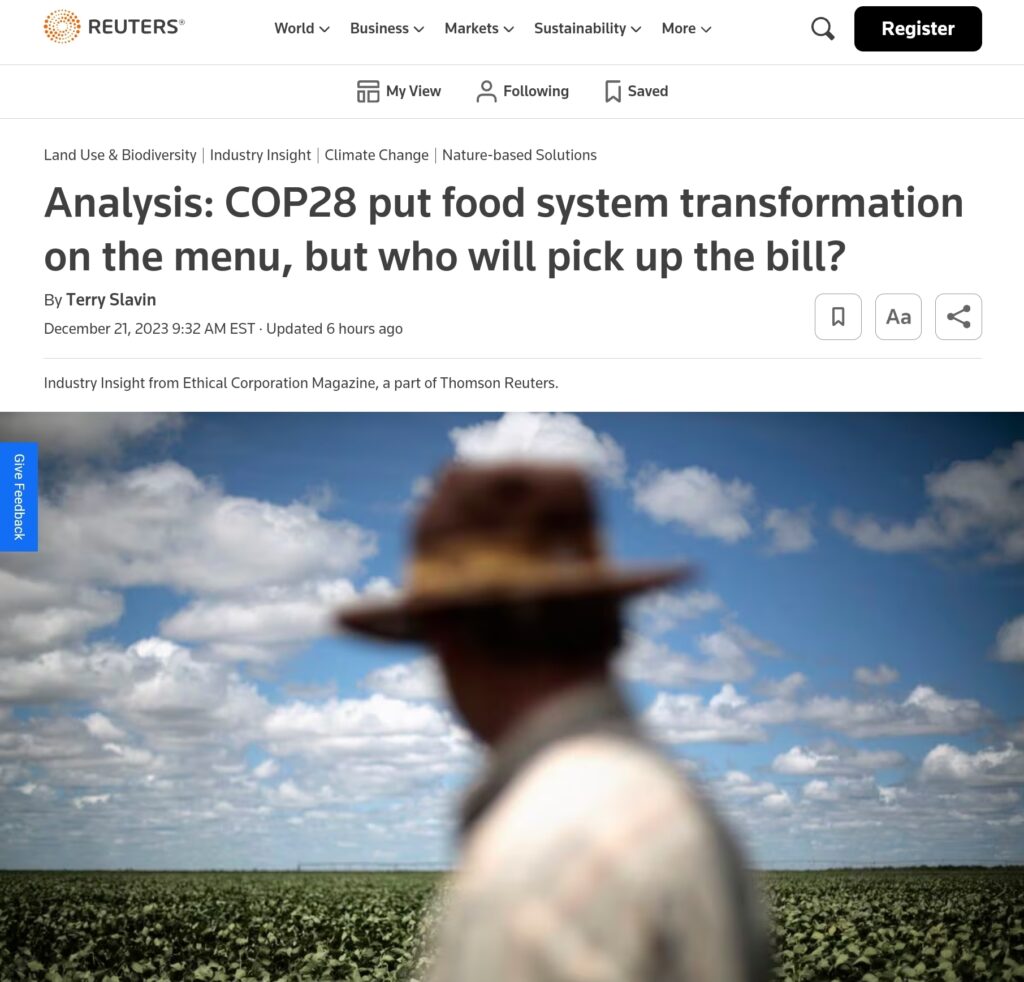Reuters:
Some 160 nations signed a declaration to include food and agriculture in their climate plans by COP30 in Brazil in two years’ time, and a new initiative, the Alliance of Champions for Food Systems Transformation (ACF), saw five countries, Brazil, Norway, Sierra Leone, Cambodia and Rwanda, go even further, committing to tackling 10 priority areas as they reorient policies, practices and investment to deliver better food systems outcomes.
As Patty Fong, of the Global Alliance for the Future of Food, told a panel at COP28, its research shows food and energy systems are intertwined: at least 15% of fossil fuel emissions are consumed within food systems, from the production of agrichemical inputs such as fertiliser to food processing, transport and packaging.
“At COP28 we made an impressive breakthrough, placing food systems and agriculture at the heart of the agenda for the first time in the history of COP,” UAE Minister of Climate Change and Environment Mariam Almheiri said.
“The way we produce and eat food causes 30% of the world’s greenhouse gas emissions, uses over 70% of the world’s freshwater, and is responsible for 80% of deforestation and habitat loss in tropical areas. If we don’t quickly find new, sustainable ways to produce and consume food, these problems will worsen in only a couple of decades.”
Big companies announced major initiatives to address agricultural methane emissions and expand the use of regenerative agriculture
December 21 – At COP26 in Glasgow, nature’s role in tackling climate change was acknowledged for the first time, with a day devoted to “nature-based solutions”, and 141 countries signing up to halt and reverse forest loss and land degradation by 2030 through the Glasgow Leaders’ Declaration on Forests and Land Use.
Two years later, at COP28 in Dubai, there were further big announcements and commitments on protecting forests, but the ambition in the nature space had expanded exponentially to encompass the entire global food system, which is responsible for 30% of the world’s CO2 emissions, but also deeply affected by extreme weather events. Already 735 million people suffer from chronic hunger globally, and 3.1 billion people can’t afford a healthy diet.



